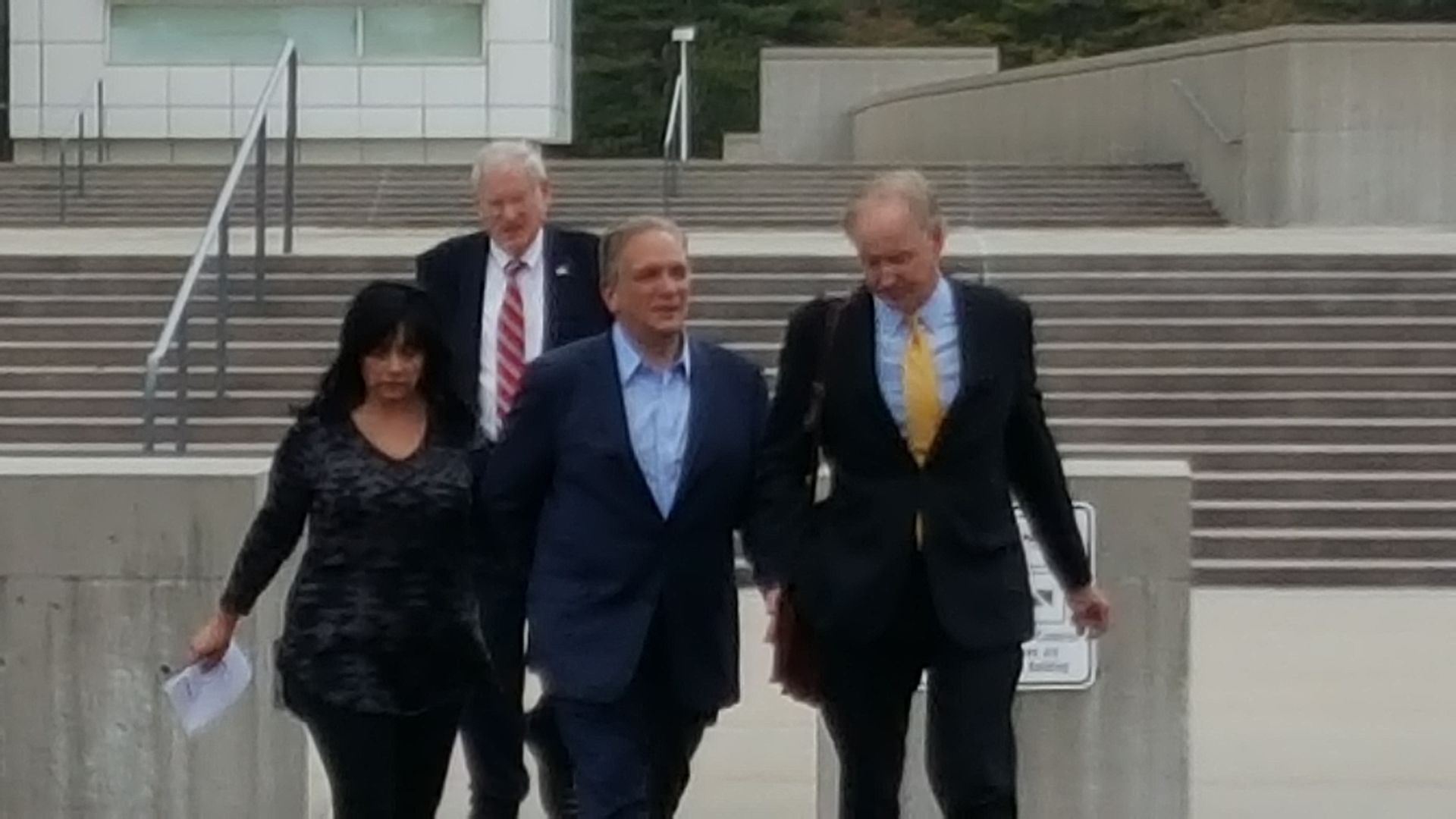Lawyers for former County Executive Edward Mangano have filed for a dismissal of all corruption charges based on misconduct by the prosecutors, according to new court filings.
Federal prosecutors knowingly withheld evidence that favored Mangano and his wife, Linda Mangano, and allowed a witness, restaurateur Harendra Singh, to falsely testify, defense attorney Kevin Keating wrote.
The Manganos face a new trial in federal court after a jury was unable to reach a verdict in their corruption trial in May.
Edward Mangano will once again face charges of extortion, conspiracy to commit federal program bribery, honest services wire fraud and conspiracy to obstruct justice, totaling seven counts. Linda Mangano is facing five counts of obstruction of justice and false statements.
Keating wrote that according to a Newsday article in June, jurors were prepared to acquit the Manganos on all charges in the first trial except those relating to a Nassau County Jail bread and rolls contract.
According to the filing, the prosecution never informed the defense of the identity of Meredith Hughes or critical information she had shared about the contract.
Hughes was the deputy majority counsel to the Nassau County Legislature at the time of the events surrounding the bread and rolls contract. Hughes stated under oath that she was the individual who originally brought the contract to the county Legislature’s presiding officer, the late Peter Schmitt, and he was immediately interested in awarding all or part of the contract to San Remo Bakery.
The contract was awarded to the bakery, owned by Singh, who pleaded guilty to eight charges, including bribery in October 2016, and testified that he had bribed Mangano in return for various favors.
Keating argues that the bread and rolls contract awarded to San Remo Bakery was not influenced by Mangano based on Hughes’ information.
“In fact, it shows that Mangano had nothing to do with Peter Schmitt’s position,” Keating wrote.
Keating also targeted Singh’s testimony as knowingly untruthful in the filings.
Newly disclosed documents acquired from Singh’s computer, which Mangano’s attorneys did not previously have access to, showed that leases for office space Singh gave to Mangano and allegedly reduced the price for were forgeries, Keating wrote.
Singh testified that he bribed Mangano with gifts and vacations to receive the bread and rolls contract. Keating wrote that Singh lied in order to receive a lighter sentence in his trial.
Despite requesting wiretaps and recordings of Singh for months, some whose existence was denied, Keating eventually received dozens he had previously not had access to, he wrote.
“The Government’s actions here are profoundly troubling, and speak to an inherent lack of good faith on the part of prosecutors,” Keating wrote. “By concealing the existence of an unambiguously exculpatory witness, prosecutors violated their ethical obligations and the Defendants’ constitutional right to Brady material.”
Brady material refers to the 1963 United States Supreme Court ruling in Brady v. Maryland, which requires the prosecution to disclose any information that is favorable to a defendant in a criminal case.
Efforts to reach the U.S. attorney’s office for comment were unavailing.
The prosecution has been given until Jan. 3 to respond. A Dec. 20 court filing by the prosecution requested an additional day to file a response.



